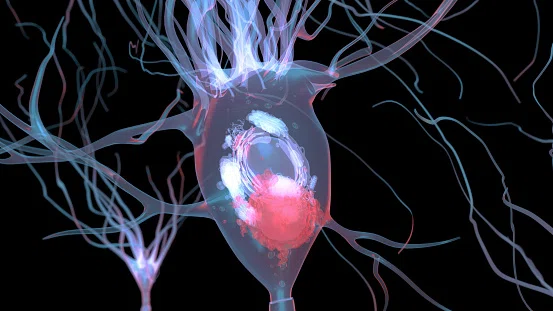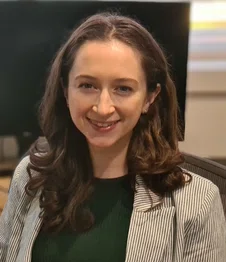


A better path to dementia diagnosis
The National Health and Medical Research Council (NHMRC) recently awarded Dr Paula Loveland, an RACP Advanced Trainee and a clinician specialising in geriatric medicine, a Postgraduate Research Fellowship. In their own words, the objectives of the NHMRC Research Fellowships scheme are to foster an intellectual environment which supports and builds the capacity of Australian research for the future and to create knowledge through investment in research that improves health and thus contributes to Australia’s prosperity.
In this case, the fellowship will allow Dr Loveland to undertake PhD studies. Her research focus is on improving the diagnosis of people with dementia, specifically, Lewy body dementia. We recently interviewed a very enthusiastic Dr Loveland about her research.
Why did you focus on Lewy body dementia?
Over the course of my clinical training, particularly as a Geriatrics Advanced Trainee, I have come to really appreciate how much dementia impacts individuals, their carers and their communities. From the early stages of subtle change to end-stage terminal disease, it can be a difficult journey with a lot of fear and uncertainty for affected people around what is happening and what the future holds. The lack of disease-modifying therapies can be especially disappointing.
The Lewy body dementias (dementia with Lewy bodies (DLB) and Parkinson’s disease dementia (PDD)) can be particularly debilitating with cognitive, motor, autonomic, sleep and neuropsychiatric difficulties. It can also be difficult to diagnose as they present with atypical features. There are no specific or sensitive diagnostic tests, rather diagnosis relies on clinical criteria and suggestive biomarkers, many of which are only available in research settings in Australia, if at all. Accurate diagnosis is very important because patients with Lewy body dementia are at high risk of life-threatening side effects from antipsychotics. Accurate diagnosis of early disease is also key for developing new therapies, as we want to intervene before permanent changes occur in the brain.
When the opportunity arose to join The Lewy Body Study research group at the Walter and Eliza Hall Institute (WEHI), led by clinician researchers Associate Professor Rosie Watson and Associate Professor Nawaf Yassi, who are leaders in this field, I jumped at it. The lab has technology that allows us to measure very low concentrations of neurodegeneration biomarkers in blood. This capability makes it feasible to investigate blood as a new diagnostic avenue for this often-frail group of patients.
The Royal Commission into Aged Care Quality and Safety and the COVID-19 pandemic has, I hope, highlighted to our community how valuable but vulnerable our older people are. I see research as an important form of advocacy, so I am proud to be working with a team that wants to improve dementia diagnosis and care.
What are you finding are the greatest challenges to your research? Were you expecting them?
Adapting to the impact of the COVID-19 pandemic has certainly been interesting! Not to mention in a group of participants who are generally in their eighth decade or older, often meaning travel for study assessments is difficult. Being flexible and taking a pragmatic approach has helped, which is something I am learning from the research team who have a lot of experience in clinical studies. For example, we do home visits and often drive across greater Melbourne to include participants in our study. It would be impossible to do this work without a very organised and coordinated team approach.
Recruiting and ‘getting the word out’ about Lewy body dementia is also something we are always working on. Although it is the second commonest cause of neurodegenerative dementia, after Alzheimer’s disease, most people in the community have never heard of Lewy bodies. Many of our study participants did not know that their Parkinson’s symptoms and their dementia were due to the same disease. So, it is exciting that our study has sites in Melbourne, Perth and hopefully soon Shepparton (rural Victoria) to recruit a broad, representative population sample.
You have stated that your research is focused on diagnosis of the condition being achieved using a blood test. With treatment currently being focused on targeting the symptoms, are you optimistic that improved detection would lead to a more holistic approach to treatment?
Yes. Currently, supportive management that is aimed at alleviating symptoms is all that we can offer patients with Lewy body dementia because no disease-modifying treatments exist. If we had an accurate blood test that could support the diagnosis of early dementia, the subtype (e.g. Lewy body), and provide prognostic information, we give our patients the opportunity to access the most appropriate specialist care and treatments. Ideally, we would also be able to use the blood test to accurately screen participants, and monitor response to treatment, in trials of disease-modifying therapies.
A blood test will not replace clinical assessment and neuroimaging, but there are a lot of ways that an accurate test could improve dementia care. The use of blood-based diagnostics also means that people living in rural and regional areas, who often cannot travel to tertiary research centres, and those who cannot tolerate neuroimaging, have better access to specialist diagnosis and participation in research.
I was wondering what you would like to see in terms of educating the population, regarding raising awareness?
While you could say that the general population has fair awareness of dementia, we still have a way to go with Lewy body dementia. A greater awareness of the cognitive fluctuations and neuropsychiatric components of the disease might improve support for affected people.
I have found that when people are willing to share their diagnosis and the impact of Lewy body dementia, this can have a powerful effect on their immediate community. It has led to some people contacting us out of the blue wanting to volunteer to help our research work. But understandably not everyone is comfortable doing this. One high-profile example is the American actor and comedian Robin Williams. While his diagnosis was only made post-mortem, his wife generously shared their experiences in a documentary and the wider media to raise the public profile of Lewy body dementia.
Also, I was wondering if once people know that their Parkinson’s symptoms and their dementia are related, does it improve engagement with your work?
It does. Our study participants and their carers are already an altruistic group of people who donate their time and energy to our study and have become very educated about the disease. But I think the idea that our work is trying to improve treatment of what they consider two problems (Parkinson’s symptoms and dementia) can be encouraging. For some people, their Parkinsonian motor symptoms are the most debilitating part of their illness. Often, they are also the greatest immediate threat to their ability to live at home (e.g. mobility difficulties and falls), so they are understandably really focused on that aspect of Lewy body disease.

Dr Paula Loveland completed her undergraduate medical degree at Monash University (MBBS (Hons), including an intercalated Bachelor of Medical Science (BBioMedScHons) in 2014. She continued her postgraduate clinical training at The Royal Melbourne Hospital, including her first two years of Advanced Training in Geriatric Medicine. In 2021, Paula joined the Watson/Yassi Laboratory at the Walter and Eliza Hall Institute of Medical Research as a Clinical Research Fellow, commencing her PhD studies investigating the role of blood biomarkers in Lewy body dementia. Paula was awarded a National Health and Medical Research Council (NHMRC) Postgraduate Research Scholarship to support this work.

